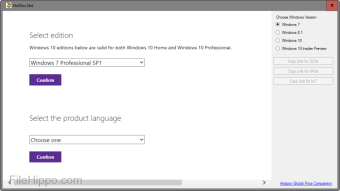

- #Windows shadow copy space requirements manual#
- #Windows shadow copy space requirements full#
- #Windows shadow copy space requirements software#
- #Windows shadow copy space requirements windows#
#Windows shadow copy space requirements software#
This can be implemented through the operating system, hardware, or the software itself. Providers: Components that create and maintain volume shadow copies. Database level applications generally have their own Writers, such as Exchange, SQL, AD, etc. Writers: First and foremost, they are part of the application to ensure that the data at the application level is intact and consistent when doing volume shadow replication. Requestors: Programs that initiate volume shadow replication, usually backup programs. The advantage of this method is that it requires little additional storage space, but the disadvantage is that there are additional read and write operations on the source volume, and the data on the source volume must still be there when data recovery is done. Using the data in the source volume and the differential data, we logically have a source volume at some previous point in time. When a write operation occurs on a volume that needs to be copied, the block being written to is first copied to another location where the differential data is stored, and the operation is indexed and logged. This method can also be implemented in software or hardware. The data of the 2 sides are identical until the synchronization connection is broken, and the data of the target volume and the source volume remain independent and read-only after the synchronization connection is broken. Synchronize the source and target volumes by software or hardware. 2 Methods of Creating Volume Shadow Copies
#Windows shadow copy space requirements full#
Among them, full backups take too long, and incremental and differential backups usually require third-party software support.

In the field of backup, traditional backup solutions are generally full backup, incremental backup and differential backup. This allows end users to safely work with files and restore to earlier versions at any time without the need for IT intervention. VSS gives administrators the ability to publish shared folders on the server and make point-in-time backups at certain intervals (up to 65 copies can exist for a specified period of time). These 2 key features help users recover accidentally deleted files even without efficient backup policies.
#Windows shadow copy space requirements manual#
When users need to retrieve data, they need to ask technical support staff to perform manual recovery, which can be quite time-consuming.Īnd by using VSS you can create data copy points on specific volumes, so that you can restore data to a previous state on demand in the future. It is not uncommon that users inadvertently store files with incorrect information, accidentally delete files, or suffer other data issues. In the IT field, many resources are used for backup and recovery of various systems. What VSS Can DoĪ new technology always appears to solve an existing problem. In fact, VSS also provides large enterprises with more recovery options than the basic tools and helps them reduce the number of IT professionals in data recovery tasks. In addition, VSS provides a more flexible backup solution, which gives even small businesses the ability to recover lost data.
#Windows shadow copy space requirements windows#
Volume Shadow Copy Service (VSS) is a service introduced by Microsoft in Windows Server 2003 to make it easier for users to recover lost files without the assistance of IT professionals. So what exactly is VSS, and how does it work? In Windows 2008, even the system's own backup tool has been replaced with a VSS version. In recent years, Microsoft has been supporting VSS in more and more of its first-line products, including Exchange, SQL, AD, DPM, and so on.

VSS (Volume Shadow Copy Service) is actually not a new technology, as Windows 2003 and Windows XP SP1, released around 2003, both provide support for VSS.


 0 kommentar(er)
0 kommentar(er)
